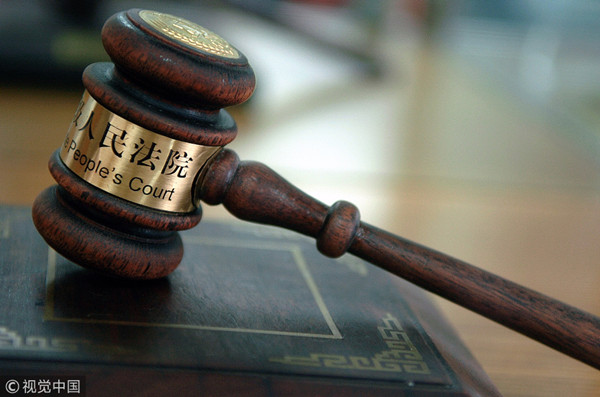Interpretations seek to improve court efficiency

[Photo/VCG]
A few judicial interpretations will be offered to help efficiently solve cases involving new businesses and people's livelihoods, a senior judge with China's top court told a news conference on Tuesday.
"We're following new problems in the fast-developing industry of e-commerce while dealing with relevant disputes, planning to issue a judicial interpretation on online consumption at an appropriate time," said He Xiaorong, vice-president of the Supreme People's Court, the country's top court.
"The plan is not only to respond to public concerns and protect consumers' legitimate rights, but also to contribute to the e-commerce industry so that it can maintain healthy growth by rule of law," he added.
Since the 18th National Congress of the Communist Party of China in 2012, Chinese courts have seen a rising number of cases involving e-commerce platforms, with several guidelines against improper behaviors in this sector, such as faking online views and falsifying internet users' comments on products, according to He.
To better protect every netizen's health rights, the top court also clarified that internet operators should review the business licenses of people who sell food through livestreaming platforms and obtain real-name registration for those providing online food order services, he said.
While highlighting the focus on internet-related disputes, he told the media the top court is also considering offering a judicial interpretation of personal safety protection orders, with greater emphasis on curbing domestic violence.
Chinese courts have issued some 11,000 such orders, which are similar to restraining orders in the West, "and we're planning to specify standards on how to prove someone needs the order and what criminal punishments those disobeying the order should face", he said.
Since 2012, courts nationwide have heard more than 36 million cases involving people's livelihoods, including those on education, employment, healthcare and housing, he added.
In the past decade, people who committed violent crimes, including intentional killing, robbery, terrorism and trafficking of women and children, have been harshly punished, in an effort to build a safer environment for the public, said Shen Liang, another vice-president of the top court.
With the bigger deterrence, the number of serious violent crime cases dropped to 49,000 last year from 75,000 in 2013, according to Shen.
To promote residents' sense of security, happiness and fulfillment, "we've also strictly combated drug and fraud-related offenses as well as crimes in which women, children and the elderly were harmed", he said.
In addition, Chinese courts have increased efforts in hearing foreign-related commercial disputes, with equal protection to litigants from home and abroad, said Tao Kaiyuan, vice-president of the top court.
"Our goal is to better serve high-quality economic development and promote the opening-up policy by rule of law, creating a sound, legal and international business environment for market entities," she added.







